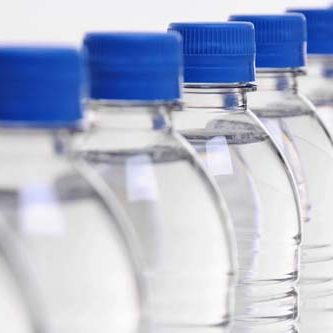In 1969, the Cuyahoga River in Ohio caught fire for the 13th time in its sad 100 year history as an industrial dump and sewer. The fire, commemorated in song, spurred the creation of the Environmental Protection Agency in 1970 and the passage of the Clean Water Act soon after. The EPA has since cleaned up many of America’s rivers, lakes and bays. But now a thorny jurisdictional problem has arisen that hampers EPA efforts to stop the remaining pollution. Small business owners appreciate the value of clean water and they want the problem fixed. Pretty much everyone agrees that the EPA has always had authority to limit pollution of America’s “navigable” year-round waterways. But people disagree about the EPA’s jurisdiction over other waterways. What about small streams that are not themselves navigable but which drain into navigable waters? What about seasonal rivers? (In the southwest, where most rainfall comes in winter months, many rivers are seasonal.) What about shallow wetlands that drain into navigable rivers? [GALLERY: Cartoons on Energy Policy] Recent Supreme Court decisions have thrown into question the fate of waters that are not themselves navigable but which feed the waters we depend on for drinking and agriculture. Major polluters have taken advantage of this legal limbo. In some cases, all they’ve done is move a pipe a few hundred feet so instead of dumping toxins directly into a navigable river, they dump into a stream that flows directly into the river. Clearly this was not the intent of the Clean Water Act. Now the EPA is fighting back with a proposed ruling called “Waters of the United States” or “WOTUS.” Basically, WOTUS states that bodies of water that feed into navigable rivers and lakes are themselves off-limits to polluters. The EPA considers this ruling to be not an expansion of authority but a clarification. It simply reinstates how the law was applied before the Supreme Court stepped in. Opposing voices claim that the WOTUS rule is in fact a bid by the EPA to greatly expand its power. The EPA isn’t helping its case with some of the wonky language it uses in its “clarification.” For example, it says that regulated waters should include “other waters, including wetlands, provided that those waters alone, or in combination with other similarly situated waters, including wetlands, located in the same region, have a significant nexus to a water identified in paragraphs (s)(1) through (3).” It’s easy to understand how opponents can mock this, and how a farmer might be concerned. The EPA’s opponents, for their part, are making matters worse with absurd and untrue claims, saying, for example, that the EPA ruling would regulate the puddles that form in your driveway after a rain.
America’s small business owners want to see better regulation of water pollution. American Sustainable Business Council recently completed a scientific poll of small business owners with two to 99 employees, spanning a wide range of industries across the U.S. 80 percent of small business owners favor federal protection of upstream headwaters and wetlands as proposed in the WOTUS rule.
Moreover, support for clean water was broad and deep regardless of political affiliation. 78 percent of Republicans and 73 percent of independents joined 91 percent of Democrats in calling for federal rules to apply to headland waters and wetlands.
Even though some business owners — particularly farmers — express worries about the details of the wording, there is broad agreement that industries cannot be trusted to self-regulate on questions of water pollution (see chart at right).
Finally, business owners recognize the practical value of clean water. 67 percent voiced concern about the harm that water pollution can inflict on their business. And 71 percent of them agreed that strong clean water protections contribute to a healthy economy and local jobs.
Kit Wood, Owner of Green Plate Catering, a local, in-season, food purveyor based near Washington, D.C. put it more personally: “Like for many in the food industry, clean water is essential to my business. All of our local farmers depend on clean water of course, and we need clean water for our food preparation. I don’t want to use bottled water to boil rice.”

